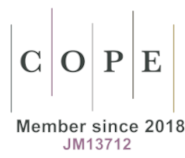Arab Women in the Gulf and the Narrative of Change: the Case of Qatar
DOI:
https://doi.org/10.2478/ipcj-2014-0004Keywords:
Arab women, stereotypes, Qatar, narrative, change, vision, education, employment, empowermentAbstract
The dramatic transformation of the Arabian Gulf since the Discovery of petroleum resources has called for a new perspective on the situation of women in the region. Qatar is an example of fast-paced industrialization, modernization and profound socio-cultural changes. As the environment transforms literally from day to day, new identities are being forged and social roles renegotiated. The leadership’s vision for the country speaks of gender equality and opportunity for all. This article asks how young Qatari women’s personal stores fit into the national narrative of change and what they see as the best path to agency and empowerment.
Downloads
References
Al-Ghanim, K.A. “Violence Against Women in Qatari society.” Journal of Middle East Women’s Studies 5, no.1 (2009): 80-93.
Google Scholar
Al-Khouli, Ramadan. “Women and Education in the Gulf: Between the Modern and the Traditional.” Gulf Women. Ed. Amira El-Azhary Sonbol. Doha, Qatar: Bloomsbury Qatar Foundation Publishing, 2012. 222-241.
Google Scholar
Al-Malki, Amal, David Kaufer, Suguru Ishizaki and Kira Dreher. Arab Women in Arab News. Old Stereotypes and New Media. Doha, Qatar: Bloomsbury Qatar Foundation Publishing, 2012.
Google Scholar
Al-Misnad, Sheikha. “The Dearth of Qatari Men in Higher Education: Reasons and Implications.” Middle East Institute Viewpoints: Higher Education and the Middle East. (2010):6-11.
Google Scholar
Al-Misnad, Sheikha. The Development of Modern Education in the Gulf. London: Ithaca Press, 1985.
Google Scholar
Bahry, Louay and Phebe Marr. Qatari Women: A New Generation of Leaders?” Middle East Policy, Vol.XII, No.2, Summer 2005. 104-119.
Google Scholar
Berger, Peter and Thomas Luckmann. The Social Construction of Reality. Harmondsworth: Penguin, (1971).
Google Scholar
Curley, Nina. “What Women Want at Work in Qatar: Conclusions from W4Women Doha.” http://www.wamda.com/2013
Google Scholar
General Secretariat for Development and Planning. Qatar National Development Strategy 2011-2016. Web 5 January 2012. http://www.gsdp.gov.qa/gsdp_vision/docs/nds_en.pdf
Google Scholar
Henderson, Carol and Mohanalakshmi Rajakumar. Qatari Voices. Doha, Qatar: Bloomsbury Qatar Foundation Publishing, 2010.
Google Scholar
Kehoe, Karrie. “Factbox: Women’s Rights in the Arab World.” Reuters Foundation, November 11 2013. http://www.reuter.com/article/2013/11/12/us-arab-womenfactbox-idUSBRE9AB00120131112
Google Scholar
Planning Council. Qatar Statistics Authority Website: Qatar Information Exchange.
Google Scholar
Sonbol, Amira El-Azhary. Ed. Gulf Women. Doha, Qatar: Bloomsbury Qatar Foundation Publishing, 2012.
Google Scholar
Stasz, Cathleen, E.R. Eide, Martorell, F. et al. (2007). Post-Secondary Education in Qatar: Employer Demands, Student Choice, and Options for Policy. RAND-Qatar Policy Institute. Web. 2 August 2013. http://www.rand.org/pubs/monographs/MG644
Google Scholar
The Peninsula. “Money is a Major Cause of Divorces.” The Peninsula, Doha, Qatar. 27 November 27, 2013. P. 1. Print.
Google Scholar
Downloads
Published
How to Cite
Issue
Section
License

This work is licensed under a Creative Commons Attribution-NonCommercial-NoDerivatives 4.0 International License.

















